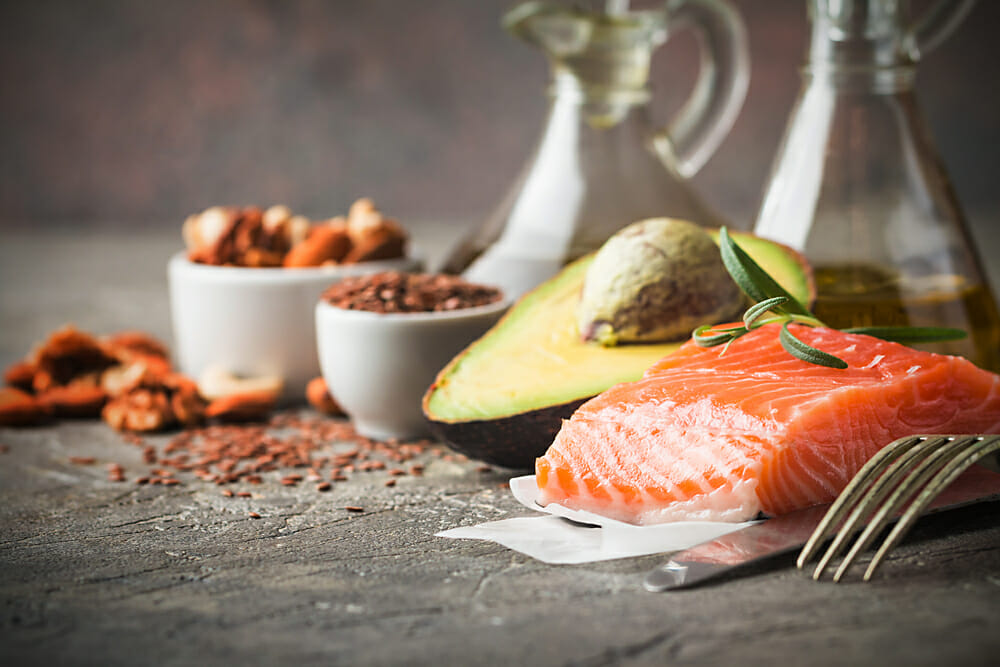Macronutrients and micronutrients provide the core foundation and building blocks for our health. Understanding the difference between macros and micros is the first step to becoming more proactive with your nutrition habits and will allow you to be more mindful of your daily eating pattern. Macronutrients consist of protein, carbohydrates, and fats and are required by our body for major processes, including energy metabolism.
Macronutrients
Protein
Proteins are made up of amino acids that are necessary for both muscle building and enzyme support, which regulates metabolism and hormone systems in our body. Protein is also extremely important for immune system function. It’s best to obtain protein from lean sources of meat—including fish, organic chicken, and turkey—while also incorporating plant-based proteins like beans and lentils. Processed meats (such as deli meats) can be problematic to our health over time, as they often contain excess nitrates and nitrites. When choosing quality sources of protein at the grocery store, opt for lean proteins labeled as free-range, grass-fed, and organic, with no synthetic chemicals or growth hormones.

Fats
Fats are extremely important for energy storage, fat-soluble vitamin transportation, hormone levels, and organ protection. Not all fats are created equal, which is why it’s essential to incorporate quality fats in our diet. Dietary fats are composed of a mix of polyunsaturated, monounsaturated, and saturated fats. Omega-3 fatty acids are a highly nutritious type of polyunsaturated fat found in seafood while olive oil, peanut butter, and avocados are excellent sources of monounsaturated fatty acids.
According to the World Health Organization, the majority of fat consumption should come from unsaturated sources, while consumption of foods containing synthetic sources of trans fats should be limited to as little as possible. Trans fats include partially hydrogenated oils, which are used to preserve shelf-life and are found in margarines, snack foods, and store-bought desserts.
To include more healthy fats in our daily diet, it’s best to use quality cooking oils (olive, avocado) while increasing intake of foods that are naturally rich in quality fats such as seafood and nuts. Additionally, aim for dressings and spreads that contain quality oils instead of solid fats or partially hydrogenated oils (i.e. palm oil).

Carbohydrates
Carbohydrates are a key macronutrient for energy and include sugars, starches, and fiber. Your body breaks down carbohydrates into glucose—our primary fuel source that is either used immediately or stored in the liver as glycogen for later use. The healthiest forms of carbohydrates are those rich in dietary fiber and whole grains without a lot of added sugar.
Complex carbohydrates include legumes, grains, and veggies, which provide a more sustained energy release. Simple carbohydrates, on the other hand, provide an instantaneous source of energy and induce spikes and drops in blood sugar. Natural sources of simple sugars are best, such as those in fruits, versus highly refined forms (high fructose corn syrup) found in sweets and store-bought desserts. Excess consumption of refined sugars over time can cause imbalances in blood sugar stabilization. Therefore, it’s best to focus on carbs that are rich in dietary fiber while choosing natural sources of simple sugars (fruits) over refined sources.

Micronutrients
Micronutrients—the vitamins and minerals required in smaller amounts than those of macronutrients—play a large role in various essential bodily processes. Micronutrients can be divided into four categories: water-soluble vitamins, fat-soluble vitamins, microminerals, and trace minerals.
Water-soluble vitamins include vitamin B and C. They are dissolved in water and help the body produce energy and avoid metabolic stress. Fat-soluble vitamins include vitamins D,E, A, and K, which are involved in protecting vision, strengthening the immune system, and providing antioxidants to the body to fight inflammation. Microminerals include calcium and phosphorus, which are required for muscle and bone strength. Trace minerals, such as iron and zinc, are needed in smaller amounts.
Our bodies cannot always produce these micronutrients on our own, which is why obtaining them through food is so important. The best way to fulfil micronutrient needs is to incorporate a balanced diet with all three macronutrients: carbs, protein, and fat. Healthy sources come from a range of whole foods, such as fruits and vegetables, legumes, whole grains, lean sources of protein, and healthy fats. Quality nutrition from nutrient-dense foods is key in order for us to meet our daily intake requirements for these micronutrients. To stay within your individual recommended calorie limits, it’s best to stick to whole foods while limiting intake of added sugars, saturated and trans fats, and sodium.











